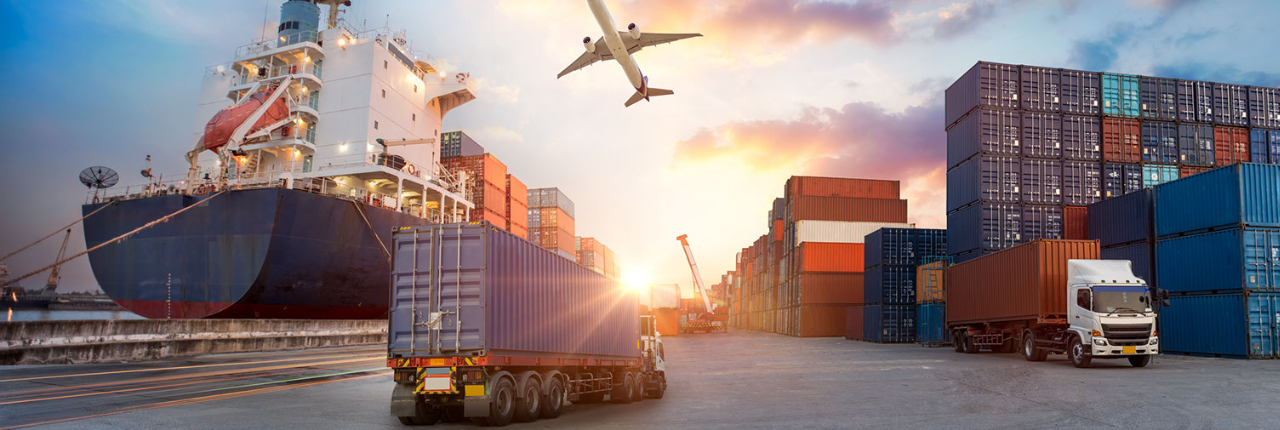Trading | Posted on | others
What are the Different Modes of Freight Transport in UK?
university.nakul@gmail.com | Posted on

The United Kingdom provides a diversified and complex network of freight transport modes to facilitate the movement of goods throughout the country. Each mode of freight transport bears unique advantages, and usually, they are employed simultaneously to produce an effective chain of supply. Below follow the primary modes of freight transport in the UK:
1. Road Transport
Advantages: Road transport is flexible and adaptable, so it suits short to medium-distance traveling. It provides door-to-door delivery, which appeals to businesses and consumers.
Infrastructure: The UK possesses a highly developed motorway and road network. Some of the key motorways that are used for the movement of goods are M25, M6, and M1.
Vehicles: Some of the most important types of vehicles that ensure road freight transport are trucks, lorries, and vans. These vehicles can vary in size and form depending on the type of transport and distance to be covered, from small vans meant for local deliveries only, to very long articulated lorries suited for long-distance transportation of great distances.
2. Rail Transport
Advantages: Rail transport is highly efficient for moving large volumes of goods over long distances. It is also more environmentally friendly compared to road transport due to lower emissions.
Infrastructure: The UK has an extensive rail network that connects major cities and ports. Freight trains often operate on dedicated tracks, reducing congestion and delays.
Goods Carried: Rail transport is commonly used for heavy and bulk goods such as coal, steel, aggregates, and containers.
3. Maritime Transport
Advantages: Maritime transport is essential for international trade, especially for importing and exporting large quantities of goods. It is cost-effective for long-distance transport.
Ports: The UK has several major ports, including the Port of Felixstowe, Port of Southampton, and Port of London. These ports handle a significant volume of containerized and bulk cargo.
Vessels: Various types of ships are used, including container ships, bulk carriers, and Ro-Ro (Roll-on/Roll-off) vessels for transporting vehicles.
4. Air Freight
Advantages: Air freight is the fastest form of transport, and therefore it is very beneficial for time-sensitive and high-value goods. It is also used for perishable goods that need to be delivered quickly to the destination.
Airports: Major airports such as Heathrow, Gatwick, and Manchester handle a large volume of cargo. Dedicated cargo terminals and facilities are available to streamline the processing and handling of the cargo.
Goods Carried: Air cargo is extensively used for electronics, pharmaceuticals, apparel items, and other such high-value or time-sensitive goods.
5. Inland Waterways
Advantages: Inland waterways provide an environmentally friendly and cost-effective alternative for moving goods, especially heavy and bulky items.
Infrastructure: The UK has a network of navigable rivers and canals, such as the River Thames, Manchester Ship Canal, and River Severn.
Goods Carried: Common goods transported via inland waterways include construction materials, agricultural products, and bulk commodities.
6. Pipeline Transport
Advantages: Pipelines are a smooth and efficient mode of transporting liquid and gaseous products. They ensure a smooth, uninterrupted transportation with very minimal impact on the environment.
Infrastructure: The UK has an extensive network of pipelines for transporting oil, gas, and other petroleum products. These pipelines connect production sites, refineries, and distribution points.
Goods Carried: Pipelines mainly carry crude oil, natural gas, and refined petroleum products, among other chemicals.
7. Intermodal Transport
Advantages: Intermodal transports combine two or more modes of transport in order to achieve maximum efficiency and cost-effectiveness. It enables a smooth transition between modes without direct handling of the cargo.
Infrastructure: In this approach, intermodal terminals and logistics hubs enable easy transfer of containers between trucks, trains, and ships.
Goods Carried: Containers, trailers, and swap bodies are now commonly used in intermodal transport. All kinds of goods, from consumer products to industrial materials, are transported through them.
Conclusion
The freight transportation system in the United Kingdom is a complex and very dynamic network vital to its economy. Capitalizing on strengths inherent in various modes of transport will guarantee effective and safe movement of goods within a country and even abroad, and each mode has appropriate advantages that make it worthy of selection, based among other factors on distance or type of goods, among others.
0
0 Comment
